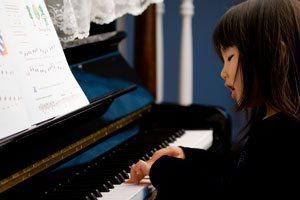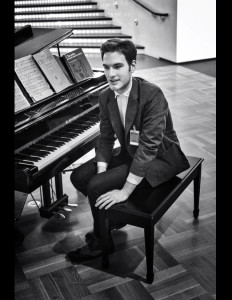Pages
- A KUNG
- Anthony
- Blog
- Cart
- Charlotte
- Checkout
- Chloé
- Chris
- Contact
- Danny
- David
- Guitar Instructors
- Home
- Home
- Hovig
- Instructors
- Isaac
- Jennifer
- Jon
- Mira
- Music Lessons
- My Account
- Paul
- Percussion Instructors
- Photo Gallery
- Piano Instructors
- Pricing
- Pricing New
- Samantha
- Sample Page
- Sarah
- Shop
- Sitemap
- test
- Testimonials
- Tsuzumi
- Violin Instructors
- Voice Instructors
- Who We Are
Categories
Archives
Meta
5 Valuable Life Skills from Music
13/04/15

Studies have shown that music education can be very beneficial for child development, especially because music is universal and very fun to learn! So why not take advantage of this amazing tool? Children who pick up an instrument develop skills that will help them far beyond reading sheet music.
Here are five valuable life-skills that your child can develop from music education.
- Confidence. Children learn to take on challenges with courage. When learning piano, accepting the challenge of learning a new, difficult piece is commendable. One knows that they will have to put in a lot of effort and time to master a song. Performing in front of a teacher, family, friends or even strangers can be nerve-racking. It takes a lot of self confidence for a child to overcome the stress or anxiety that may surface with an upcoming recital.
- Patience. Children learn to adapt their expectations when having to learn a challenging piece. When having difficulty, instead of giving up right away, they realize they need to take small steps that may take them longer to accomplish their big goal of mastering the song. They learn that practice makes perfect.
- Ingenuity. Children develop creativity skills that can help them in all aspects of life. Being creative will help them to be more resourceful when facing a problem. Their overall dexterity will also improve. They won’t complain about being bored because they can always think of new ideas to have fun, like composing a new song!
- Determination. Children learn to stay focused to achieve the goals they set. Learning music takes a lot of good habits and self-discipline. It takes a lot of hard work to attain set goals. Setting big goals, like learning a new Mozart piece, motivates people to accomplish them.
- Critical Thinking. Children learn to follow notes, count beats, and play their instrument all at once. Looking at each note, measure, and phrase alone takes a lot of critical thinking to then have to play in such a way that will give life and soul to a song. Learning how to read music helps children excel in subjects like English because of the reading comprehension skills needed.
Four Powerful Tools of Music
05/04/15

We hope you’ve had a great start to the new year! Have you been keeping up with your new year’s resolutions? One of our resolutions is to strive even further to provide you with the best music education out there. Not only can you learn through our talented instructors, but also through our blog!
As we’ve mentioned before, music is a powerful tool that can be utilized for people of all ages, whether it’s used for child development or even music therapy for adults. Because it is a new year, we would like to reflect on a few amazing scientific discoveries made in 2014 about people who listen to music.
- Music Improves Running Performance.
“I’m going to exercise more this year.” Are you one of those people whose list of resolutions include going to the gym more often?? Guilty! *blushes* We hope you’ve been keeping up with your cardio because according to the Journal of Strength & Conditioning Research, listening to fast or slow motivational music while running stimulates the prefrontal cortex, which gives runners more positive emotions that contribute to an improved performance and faster recovery time post-run.
- Correlation Between Rhythmic Ability and Language Learning.
According to developmental psychologists from Northwestern University, a great way to recognize disabilities in language early on is with a test in rhythmic ability. By distinguishing disabilities while a child is still developing, one can address the impairment while the child’s brain is still adaptable or impressionable.
- Musical Training and Grey Matter Linked with ADHD.
According to a longitudinal study done by scientists from the University of Graz, children who learn music had notably thicker grey matter in their frontal lobes, which is the part of the brain that is associated with sustained attention and concentration. Musical training builds the structures that are significantly deficient in neural scans of children suffering from ADHD.
- Music Cures Tinnitus.
Tinnitus is a ringing or buzzing in the ear that can be caused from many things, such as listening to music too loudly or injuries with one’s jaw, head, neck, etc. for people of any age. Chronic tinnitus is when one hears a long tone while there are actually no musical stimuli and is typically associated with old age and hearing loss. According to studies done by the University of Munster, listening to soft, carefully measured music can cure tinnitus! Researchers have found that with focused listening of music, they can reorganize auditory cortices of the brain to get rid of the “ghost tones” that are apparent with tinnitus.
There are unlimited benefits we get from a music education. We are excited to see what new scientific discoveries about music will be made this year! Happy 2015! Wishing you a year filled with happiness, good health and beautiful music!
Anthony – Instructor of the Month
03/04/15
 Our students get the joy of seeing their talented music instructors weekly and lessons are focused on their progress and what we can do to help them improve as musicians. RMA has amazingly gifted students, and we strive to let each and every one of them shine. We sometimes forget that behind our shining stars are incredible instructors who do a wonderful job in teaching, inspiring, and guiding our students. Here at RMA, we are extremely proud of our instructors and would like to feature an “Instructor of the Month”.
Our students get the joy of seeing their talented music instructors weekly and lessons are focused on their progress and what we can do to help them improve as musicians. RMA has amazingly gifted students, and we strive to let each and every one of them shine. We sometimes forget that behind our shining stars are incredible instructors who do a wonderful job in teaching, inspiring, and guiding our students. Here at RMA, we are extremely proud of our instructors and would like to feature an “Instructor of the Month”.
This month we would like to feature Anthony who is one of our talented piano instructors. Not only is Anthony a dedicated RMA instructor, he performs at local venues with his instrumental trio, Artifacto, and is also an accompanist with the prestigious American Musical and Dance Academy in Hollywood, where he is currently the associate music director for AMDA’s spring production of Annie Get Your Gun. Anthony recently participated as an accompanist for LA Opera’s winter production of The Marriage of Figueroa, presenting workshops in over 15 elementary schools in and around Los Angeles to rehearse, stage, and perform the original LA-themed opera. Anthony is an inspiration to many of our students, but we were intrigued as to what inspires him.
Anthony was brought up in a musical family in Nashville, Tennessee. His grandmother played the organ and piano, and he remembers listening to all the hymns she used to play for him. His uncle played the trombone, exposing him to the music scene and opened him up to genres like jazz, funk, fusion, and rock. His family had always encouraged him to learn and practice music growing up, therefore, it was easy for him to find inspiration and support for his passion.
Anthony didn’t always have his heart set on music. He had a lot of interest in physics, math, and science fiction growing up. At one point in his childhood, he remembers aspiring to be a surgeon. However, he realized that music was his greatest passion when he landed an assistant position in the music industry, in which he helped a composer/arranger by preparing scores. He would tag along with his mentor to the studio where he enjoyed watching other passionate musicians work towards their aspirations. This is when he decided that he would devote everything to pursuing a career in music.
Anthony’s teaching career has been a rewarding experience here at RMA, “It’s very rare to have students who put in the work. It’s so great working with parents who are so involved in getting their kids to work hard.”
If you were to go to one of Anthony’s performances, expect to be dazzled by his “modern-contemporary instrumental fusion music”. He is an eclectic collector of styles. Performing is always fun, but Anthony also enjoys listening to works of other talented artists. His favorite genre right now is avant-garde hip hop. “It’s cool because it includes jazz. I really like Flying Lotus because of his collaborations with artists like Herbie Hancock, Kendrick Lamar… even Snoop Dogg. He’s also local—in North Hollywood!”
Although Anthony has accomplished a lot and has years of experience in performing, he still becomes nervous no matter which event, who he’s playing for, and how many people are in the audience! He can clearly recall the feeling he had before auditioning for college, “I would shake before I had to perform. I would stretch my hands and do push ups to get the blood flowing in the right way.”
His advice for his students is to “look at nervousness straight in the eye. What’s getting in your way? Consciously try to work through them. If you ignore your nervousness, it will destroy your performance. Face it head on!” At the end of his interview, we had a short series of fill-in-the-blanks we thought would serve as words of encouragement for our students.
Music is a language. It’s intangible unlike words.
My music makes me feel dignified.
I write songs because I want to participate in the dialogue. I want my voice to be heard in a participatory way.
I Support music because for kids, it’s the most invaluable thing they could get into. Support music because music never dies, and music will never die.